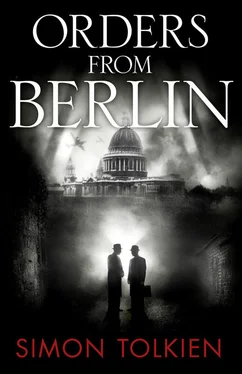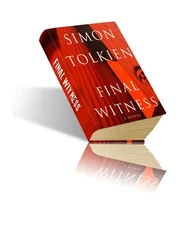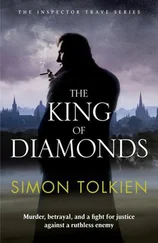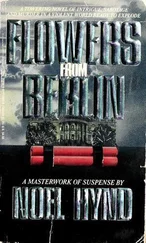Simon Tolkien - Orders from Berlin
Здесь есть возможность читать онлайн «Simon Tolkien - Orders from Berlin» — ознакомительный отрывок электронной книги совершенно бесплатно, а после прочтения отрывка купить полную версию. В некоторых случаях можно слушать аудио, скачать через торрент в формате fb2 и присутствует краткое содержание. Жанр: Полицейский детектив, на английском языке. Описание произведения, (предисловие) а так же отзывы посетителей доступны на портале библиотеки ЛибКат.
- Название:Orders from Berlin
- Автор:
- Жанр:
- Год:неизвестен
- ISBN:нет данных
- Рейтинг книги:4 / 5. Голосов: 1
-
Избранное:Добавить в избранное
- Отзывы:
-
Ваша оценка:
- 80
- 1
- 2
- 3
- 4
- 5
Orders from Berlin: краткое содержание, описание и аннотация
Предлагаем к чтению аннотацию, описание, краткое содержание или предисловие (зависит от того, что написал сам автор книги «Orders from Berlin»). Если вы не нашли необходимую информацию о книге — напишите в комментариях, мы постараемся отыскать её.
Orders from Berlin — читать онлайн ознакомительный отрывок
Ниже представлен текст книги, разбитый по страницам. Система сохранения места последней прочитанной страницы, позволяет с удобством читать онлайн бесплатно книгу «Orders from Berlin», без необходимости каждый раз заново искать на чём Вы остановились. Поставьте закладку, и сможете в любой момент перейти на страницу, на которой закончили чтение.
Интервал:
Закладка:
Seaforth smiled, remembering what Churchill had said at the end of their last meeting: ‘If you get more intelligence like this, I shall want to see you again straight away.’ Well, these documents represented a treasure trove of information even more sensational than before. And once Seaforth had prepared and circulated his own report to go with them, a further summons to him and Thorn was inevitable, and Heydrich would be able to report to the Fuhrer that the deed had indeed been done.
But first he needed to put in an appearance at work. He glanced at his watch. It was time to go.
He met Jarvis in the hall, or rather Jarvis met him. Seaforth had taken care over the years to cultivate the skeletal caretaker whenever the opportunity arose, making periodic contributions to a Boer War Veterans Fund collection box in Jarvis’s basement cubicle, whose contents — as he well knew — were emptied every Friday evening into Jarvis’s coat pocket.
‘Thorn’s been ’it,’ the old man said, conveying the news with obvious satisfaction. There was no love lost between him and the deputy chief, who’d never seen the value of hobnobbing with the staff, and it had been a red-letter day for Jarvis when Thorn was passed over for the top job after Albert Morrison retired.
‘Oh, God, no!’ said Seaforth, dismayed. It was the last news he’d needed to hear, just when things had started to go so well. Thorn’s presence was essential to the assassination plan. ‘How bad is it?’ he asked.
‘’Ospital seemed to think ’e was going to be all right when they rang up. More’s the pity,’ said Jarvis with obvious disappointment. ‘Funny, I was looking forward to giving you the news. I thought you’d be dancing a jig when you ’eard. No love lost between the two of you, is there?’
‘Very shrewdly observed, Mr Jarvis. We can always rely on you for that,’ said Seaforth, looking relieved. ‘But Mr Thorn’s my boss, and let’s just say that I try not to let my personal feelings get in the way of my work. You don’t happen to remember the name of the hospital, do you?’ he asked, trying to make the question sound as casual as possible.
‘What, you want to send ’im flowers, do you? Bunch of roses and a get-well card?’ asked Jarvis, making a chortling sound, which passed as his version of laughter.
‘Not quite,’ said Seaforth, smiling. ‘But I’d like to know when he’s coming back.’
‘Or if ’e’s comin’ back, more likely! St Stephen’s. That’s what they said on the blower,’ said the caretaker, giving vent to another chortle. ‘Give ’im my regards,’ he added over his shoulder as he turned away and went back down the stairs to the basement, the sound of his cracking knees audible even after he’d disappeared from view.
Seaforth telephoned the hospital as soon as he got to his office.
‘He’s going to be fine,’ said an efficient-sounding nurse when he was put through to the ward. ‘We’re keeping him in for another twenty-four hours for observation. But that’s just because he was quite heavily concussed when he came in. It’s standard procedure. I’m sure he’ll be good to go tomorrow.’
‘When tomorrow?’ asked Seaforth.
‘After breakfast.’
‘And when’s breakfast?’
‘Nine o’clock. Maybe ten o’clock. I don’t know. This isn’t a railway station — not everything’s on a timetable,’ said the nurse, losing patience.
‘Thank you,’ said Seaforth, but she’d already rung off.
He sat back in his chair and stretched his legs out in front of him, feeling relieved. Everything was fitting into place. He would send his report to Churchill as soon as Thorn came back to HQ. And with any luck, it would be Thorn’s last day there. As already agreed with Heydrich, the announcement of Churchill’s death would be followed by a radio message from Berlin addressed to Thorn using the same code as in Heydrich’s last radio message to Seaforth, the one asking for details of the plan. Interception would be certain — the communications boffins were under instructions from Thorn to watch out for any further use of the code — and the message would provide inescapable proof that Thorn was the mole and that he’d been acting under orders from Berlin in his assassination of the British Prime Minister, intending to blame the murder on Seaforth and set him up to take the blame.
It was the symmetry of the plan that delighted Seaforth. It was like a move in a complex game of chess that provided a perfect mate. In death, Thorn would pass through the looking-glass and take Seaforth’s place as both mole and assassin.
And spymaster too. Seaforth’s fictional agent in Berlin would turn out to have been Thorn’s, drip-feeding false information to Seaforth. And Thorn would not be around to deny the allegation. Dead men tell no tales, but they also can’t tell the truth, thought Seaforth with a wry smile.
Back home in the evening, Seaforth worked late, repairing his brother’s diary and perfecting his report on Operation Sea Lion. When he was done, he unlocked the bottom drawer of his desk and took out the Colt semi-automatic pistol registered to Alec Thorn. He carefully removed the cartridges from the magazine and expertly dismantled the firearm. And then, taking cloths, solvent, and a toothbrush from the same drawer, he lovingly cleaned the frame, slide, and barrel until they gleamed and shone in the lamplight.
CHAPTER 8
The train moved slowly north, chugging through the peaceful English countryside. It was a beautiful day, and the Blitz seemed very far away. It was a strange experience for Trave to see towns and villages where no bombs had fallen, although the on-going threat of invasion was never far away. Road signs had been removed and the landscape was dotted with concrete pillboxes and anti-tank ditches reinforced with barbed-wire entanglements.
The names of the railway stations had also been taken down, and passengers had to rely on female announcers talking over loudspeakers to tell them when they’d reached their destination. Where the names and timetables had been, the walls were covered in government information posters, and there was always one asking: is your journey really necessary? It was a question that Trave couldn’t answer. He’d spent too much time thinking about all that had happened, and he had no idea any more whether he was on a wild goose chase or a mission to save the country. All he knew was that he had made up his mind to go and see Seaforth’s mother, so go he would. Sometimes it was a vice and sometimes a virtue, but Trave was not a man to leave a stone unturned.
All the train’s compartments and corridors were packed, and Trave had been lucky to get a seat. Many of the passengers were soldiers going home on leave, and most of them seemed exhausted, using their packs as pillows while they tried to catch a little sleep. Trave was moved by how young they were, forced to confront their worst fears when some of them were barely out of school. And yet they didn’t have that drained, vacant stare he’d seen in so many soldiers’ eyes when they’d come back on the troop trains after the Dunkirk evacuation four months before. There seemed a new, steady determination about them now, as if they were ready for the long battle that lay ahead. Looking at them gave Trave hope.
As the day wore on, the air got thick with cigarette smoke and oppressively hot, and Trave stood up and opened the window. Immediately a cloud of soot blew back into his face from the coal-fed steam engine; he fell onto his seat, coughing and spluttering, and everyone in the compartment burst out laughing. But the humour was not ill-natured and Trave joined in, sheepishly at first but then with abandon.
‘You look like a regular coal miner,’ said the woman sitting opposite, and offered him one of her sandwiches, which Trave accepted gratefully. He hadn’t brought any food with him, forgetting that there were no restaurant cars on long-distance trains any more since the war started. And soon everyone in the compartment was talking. Trave felt buoyed by the friendly atmosphere. This was what England was about, he thought. The easy good nature of the people meant that a cruel philosophy like Nazism could never take hold. The English were too decent, too democratic, to ever let that happen.
Читать дальшеИнтервал:
Закладка:
Похожие книги на «Orders from Berlin»
Представляем Вашему вниманию похожие книги на «Orders from Berlin» списком для выбора. Мы отобрали схожую по названию и смыслу литературу в надежде предоставить читателям больше вариантов отыскать новые, интересные, ещё непрочитанные произведения.
Обсуждение, отзывы о книге «Orders from Berlin» и просто собственные мнения читателей. Оставьте ваши комментарии, напишите, что Вы думаете о произведении, его смысле или главных героях. Укажите что конкретно понравилось, а что нет, и почему Вы так считаете.












